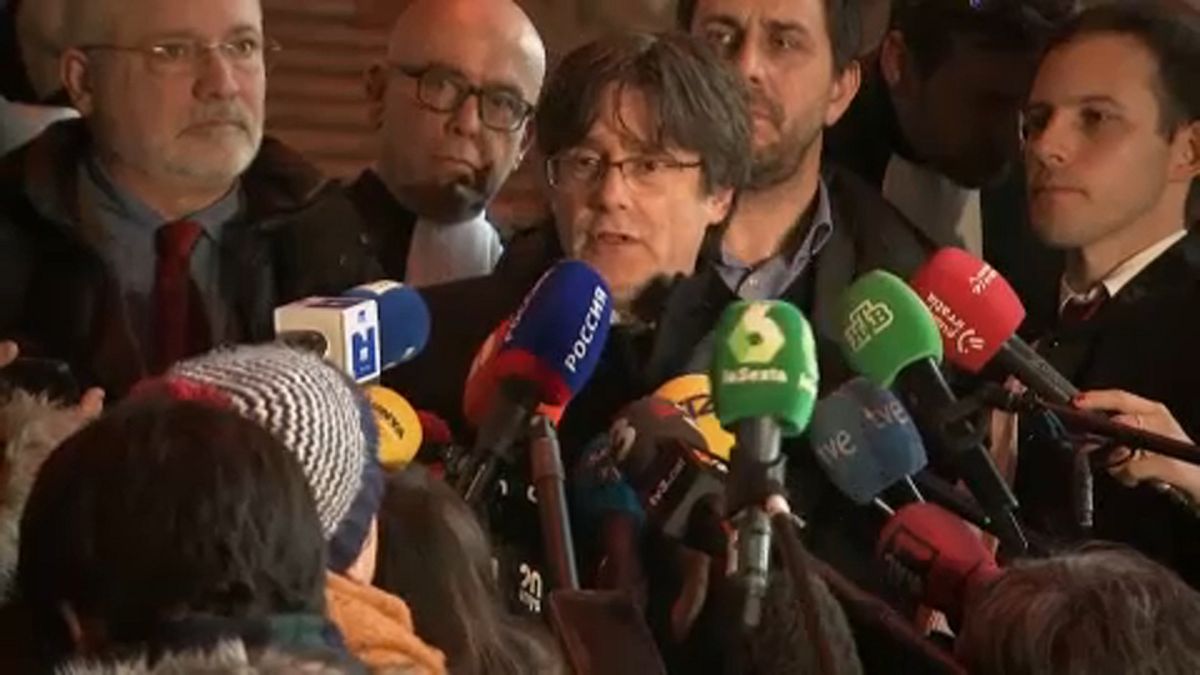This week could be a crucial one for legal proceedings in the case of jailed and exiled Catalan politicians.
A Belgian court has postponed its decision on the extradition to Spain of Carles Puigdemont and his two counselors, until next February.
The former Catalan leader's defense lawyers argued that the trial should await the decision of the European Justice on the immunity entitlement of other independence leaders.
The court will rule on the case of Oriel Junqueras a fellow Catalan leader who is serving a 13 year prison sentence in Spain for his role in the independence referendum
"I think we should let the judges work in Luxembourg because they have something very relevant in their hands. Not only what affects us as people, but also to more than two million three hundred thousand European voters who remained without representation. And it affects a substantive issue that is the value of votes in the European Union," Puigdemont told reporters outside the court.
The European Court of Justice (ECJ) will rule on Thursday as to whether Mr Junqueras is entitled to immunity from prosecution from the Spanish authorities due to his election as an MEP.
Like Puigdemont, he was elected MEP in May's European elections, and his case will set a precedent for Puigdemont's extradition hearing.
"Everything can change from the moment immunity is recognized. This means that they cannot either pursue or snatch them until the European Parliament itself has lifted this immunity. And therefore it means that they are inviolable, they cannot be detained, and the European arrest warrant is suspended pending the decision by the European Parliament itself, on whether it will lift the immunity," Christophe Marchand, Puigdemont's defence lawyer told Euronews.
All eyes turn now towards the EU's top court which will state whether immunity is immediately acquired at the time of the election results, or when the administrative process is taken place - which requires an oath to be sworn.
"It is very hard to tell what the outcome of this question will be because if the court would decide that, first of all that there is immunity from election night onwards, and second that this additional requirements are illegal, this would shake up the European political landscape quite a bit. So, I can imagine that the court would find some kind of middle ground," explains Sascha Hardt, Assistant Professor of Comparative Constitutional Law, Maastricht University.
So far, the European Parliament has allowed the Spanish government's position to prevail but the president of the parliament is required to apply the judgement of the ECJ.
